MercoPress. South Atlantic News Agency
Economy
-
Sunday, August 11th 2013 - 04:32 UTC
Chinese economy could be stabilizing shows latest set of economic figures

China's economy could be stabilising, the latest set of economic figures from the country has suggested. Factory output in July rose 9.7% compared with a year ago, ahead of expectations and up from the previous month's figure of 8.9%. Consumer prices held steady in July, rising 2.7% from a year earlier, matching the rate seen in June.
-
Saturday, August 10th 2013 - 01:58 UTC
UK opens second largest offshore wind farm in the world
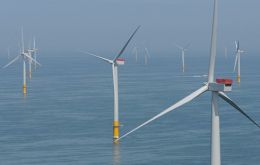
Greater Gabbard wind farm, which is reportedly the second largest offshore wind farm in the world, costing £1.3 billion and generating enough clean electricity to power over half a million homes, was officially opened off the British coast of Suffolk by the Energy and Business Minister Michael Fallon.
-
Friday, August 9th 2013 - 04:30 UTC
Confederations Cup boosted international tourist income in Brazil to record levels

The recent Confederations Cup football tournament helped boost international tourist income to Brazil to record levels in the first half of the year, according to the latest stats from the Brazilian Tourist Board, Embratur.
-
Friday, August 9th 2013 - 04:23 UTC
Paraguay meat industry exports recovering and could reach 1.5bn dollars this year
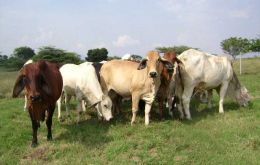
Paraguay meat industry exports in the first seven months of the year reached 839 million dollars, which is 45% higher than the same period a year ago (577m) according to official data from the National Livestock quality and health services, Senacsa.
-
Thursday, August 8th 2013 - 14:00 UTC
Pope tightens money-laundering standards for Vatican financial activities

As part of the Vatican's ongoing efforts to ensure that all its financial activity complies with international standards, particularly those aimed at preventing money laundering and the financing of terrorism, Pope Francis has expanded the role and the reach of the Vatican's Financial Intelligence Authority.
-
Thursday, August 8th 2013 - 13:52 UTC
Uruguay concludes successfully the issue of a new 2024 global bond
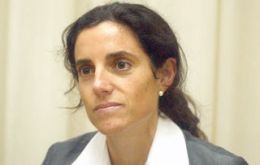
Uruguay sold 2 billion in a new 2024 global bond at a yield of 4.521% as a part of a debt liability operation that includes a debt swap, the government said on Wednesday.
-
Thursday, August 8th 2013 - 03:15 UTC
Bank of England ‘forward guidance’: no rate rise until unemployment falls to 7%

The Bank of England's new Governor Mark Carney said the central bank will not consider raising its record low interest rate and stimuli until unemployment falls below 7%.
-
Thursday, August 8th 2013 - 03:05 UTC
Argentina central bank turned into state-financing tool: recession and higher inflation forecasted
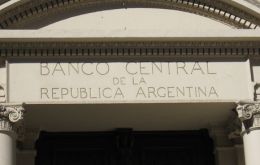
Argentina is forecasted to fall into recession next year on the back of super-loose money policy with inflation reaching 24% this year and 30% in 2014 as the government continues to appeal to Central bank resources to meet budget commitments, according to London based Capital Economics.
-
Wednesday, August 7th 2013 - 17:49 UTC
Brazil’s Dilma celebrates decline in food prices reflected in ‘contained’ inflation

The first decline in food prices in two years provided temporary assistance to Brazilian President Dilma Rousseff’s efforts to tame inflation. Prices as measured by the benchmark IPCA index rose 0.03% in July and more encouraging with prospects for prices to remain unchanged.
-
Wednesday, August 7th 2013 - 17:45 UTC
Brazil farmers ask until when will ideology prevail over economics and trade in Mercosur
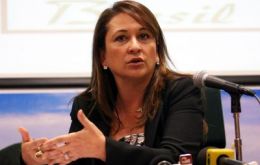
“Until when will we allow ideology to prevail over economics, markets, competitiveness grounding the great vessel of Brazilian trade in the port of little regional pretensions”, asks Katia Abreu in a column published in Folha de Sao Paulo openly criticizing the administration of Dilma Rousseff for its Mercosur policy and the results of the recent Montevideo summit.
